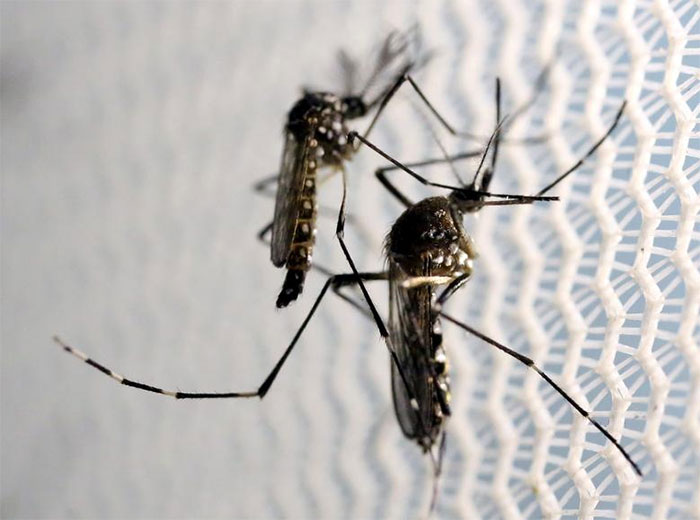After 10 years of research, Professor Paul MacAry and his colleagues at the National University of Singapore hope that clinical trials for a “super drug” that kills the virus causing dengue fever can be initiated within the next 18 to 24 months.
The researchers are optimistic that if this drug is successfully tested and implemented, it will shorten the duration of the virus’s presence in infected individuals, thereby preventing the transmission of the dengue virus to other family members, as Aedes aegypti mosquitoes will not carry the pathogen.

About half of the world’s population is currently at risk of contracting dengue fever. (Illustrative photo: Reuters)
According to Channel News Asia (CNA), in 2012, Paul MacAry and his colleagues at the Immunology Research Program at Yong Loo Lin School of Medicine, National University of Singapore, isolated an antibody from a patient after screening hundreds of millions of antibodies derived from individuals who had recovered from dengue fever type 1.
“We witnessed an exceptional case; this antibody seems to have the ability to kill the virus within a few hours,” researcher MacAry stated.
Over the past 10 years, scientists have isolated antibodies for all four serotypes of dengue fever and are preparing to conduct clinical trials for four powerful and effective drugs.
“We are currently in the process of fundraising to support the clinical trial phase,” Professor MacAry added, noting that the first trial for serotype 1 will begin in 18 to 24 months.
According to Professor MacAry, the drug his team is researching will be the most effective therapy for dengue fever. Currently, there is no specific treatment for dengue patients worldwide.
Patients may receive saline to replace lost fluids or take paracetamol to relieve headaches; however, they must wait for their immune system to produce antibodies to combat the virus. This process can take up to two weeks.
“What we are striving to do is prevent the progression of the disease from becoming more severe. Our drug is designed to be administered into the bloodstream of infected patients, where it will come into contact with the virus and eliminate the pathogen within six hours,” MacAry explained.
Singapore is witnessing a rise in dengue fever cases, with 29,500 cases reported since the beginning of the year.
According to the World Health Organization (WHO), the global incidence of dengue fever has significantly increased, with about half of the world’s population currently at risk of the disease.
It is estimated that there are around 100 to 400 million cases of dengue fever each year, with over 80% of cases being mild and asymptomatic. However, in severe cases, patients may experience dengue hemorrhagic fever or dengue shock syndrome, which can be life-threatening. Symptoms such as severe headaches, eye pain, and vomiting can also lead many individuals to require hospitalization. There are four strains of dengue fever globally, meaning that an individual can contract the disease four times.

















































